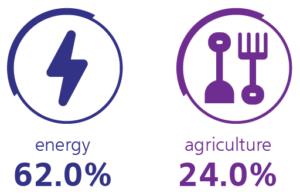All project activities in Belarus are suspended until further notice.

Climate policy development and advancing cooperation with the EU in Belarus

Belarus has been participating actively in the multilateral formats of the Eastern Partnership. Through the EBRD-managed Eastern Europe Energy Efficiency and Environment Partnership, Belarus has access to €10 million for key projects in energy efficiency and environmental protection. EU support has helped to improve energy efficiency in a number of educational facilities and residential buildings. Bilateral dialogue on environment and climate action has taken place on an annual basis. Belarus is moving forward on its sustainable energy pathway, which is supported by the EU and international financing institutions.
-
 2014
2014
- Biennial Report 1
 2015
2015
- INDC 2016-2030
- COP21 Paris Agreement
- Pledge to Sustainable Developent
Agenda 2030 - Biennial Report 2
 2016
2016
- Ratification of Paris Agreement
- State Program “Environmental Protection
and Sustainable Use of Natural Resources”
 2017
2017
- EU Bilateral Partnership Priorities
negotiation (2017-2020)
- EU Bilateral Partnership Priorities
 2019
2019
- EU4Climate launched
- Biennial Report 3
 2020
2020
- Updated NDC 2021-2030
- National Strategy for Sustainable
Development - Biennial Report 4
 2021
2021
- Second NDC – under development
- Updated 7th National Communication under development
- Programme for the social and economic development of the Republic of Belarus 2021-2025
EU4Climate key policy interventions and expected impact


Full country profile can be downloaded here.





